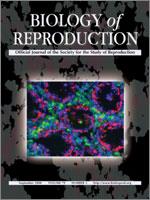The alphaT3–1 and LbetaT2 gonadotroph cell lines contain all the known factors required for expression of gonadotropin genes, yet only the LbetaT2 cells express the beta subunits. We hypothesized that comparison of their nuclear proteomes would reveal novel proteins and/or modifications that regulate expression of these genes. We identified nine proteins with different expression profiles in the two cell lines, of which several were chosen for further functional studies. Of those found at higher levels in alphaT3–1 nuclei, 1110005A23RIK was found associated with the Fshb gene promoter and repressed its expression. Transgelin 3 overexpression reduced transcript levels of Fshb, and its knockdown elevated Lhb and Cga transcript levels, indicating an ongoing repressive effect on these more highly expressed genes, possibly through altering levels of phosphorylated mitogen-activated protein kinase. Heterogeneous nuclear ribonucleoprotein A2/B1 repressed splicing of the Fshb primary transcript, which it binds in the first intron. Proteins at higher levels in LbetaT2 nuclei included prohibitin, the overexpression of which reduced promoter activity of all three gonadotropin subunits, and appeared to mediate the differential effect of GnRH on proliferation of the two cell lines; its knockdown also altered cell morphology. Two other splicing factors were also found at higher levels in LbetaT2 nuclei: the knockdown of PRPF19 or EIF4A3 decreased splicing of Lhb, or of both beta subunit transcripts, respectively. The levels of Eif4a3 mRNA were increased by activin, and both factors increased Fshb splicing. This study has revealed a number of novel factors that alter gonadotropin expression and gonadotroph function, and likely mediate or moderate effects of the regulatory hormones.
How to translate text using browser tools
1 September 2008
A Proteomic Comparison of Immature and Mature Mouse Gonadotrophs Reveals Novel Differentially Expressed Nuclear Proteins that Regulate Gonadotropin Gene Transcription and RNA Splicing
Jiajun Feng,
Mark A. Lawson,
Philippa Melamed
ACCESS THE FULL ARTICLE

Biology of Reproduction
Vol. 79 • No. 3
September 2008
Vol. 79 • No. 3
September 2008
differentiation
follicle-stimulating hormone
gonadototroph
gonadotropins
luteinizing hormone
pituitary
proteomics




